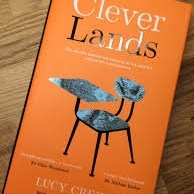
SA

Parenting and education, topics close to a Jewish heart
STEVEN KRAWITZ
As Jews, our children are our most precious asset. As such, education and parenting are uppermost in our minds. Here are two books that tackle just that: The first focuses on education and the second on parenting.
Lucy Crehan, a British teacher and researcher, took a “geek-gap-year” off from teaching in London to visit five countries whose education systems always top international education league tables. She visited Finland, Japan, Shanghai, Singapore and Canada and spent a lot of time meeting principals, teachers, learners, parents and researchers.
In Cleverlands, Crehan finds that countries that delay the start of formal education, perform better than those that sit five-year-olds in desks and teach them to read. Until age seven, Finnish children learn through structured and unstructured play, mastering all the prerequisites for literacy and numeracy and years later are outperforming their early-starting British and American peers.
Another huge factor of success, she writes about is the growth mindset concept as a determinant of success. This refers to children who believe that anyone can achieve and that success is dependent on their efforts, rise to challenges and spur themselves onto greater successes.
This concept underpins East Asian education systems, the absolute world educational superpowers.
American and British school-goers have a much more fixed mindset, believing that a person has a fixed intelligence and abilities, resulting in giving up after their first failure and not having the grit to persevere.
Cleverlands is a valuable addition to the literature of educational success and is an important book for educators and parents and anyone interested in education.
In “The Happiest Kids in the World” Michelle Hutchinson and Rina Mae Acosta, a Brit and an American respectively, married to Dutchmen and living in Holland, are able to compare parental styles in the UK and the US to that in Holland.
South African Jewish parents are very American and British in parenting style: helicoptering, over-scheduling their children’s free-time, booking extra lessons and restricting their young children’s autonomy.
What a breath of fresh air from Holland, where Dutch parents believe in simplicity, sharing time with their children, not fancy gadgets and expensive experiences, following a common sense approach rare in the Anglo-Saxon world.
From pregnancy, through childbirth, childhood and adolescence, the secrets of being Dutch parents are described and explained. Dutch infants sleep through the night from a young age and there is even a chapter entitled “Dutch teenagers don’t rebel”.
“What about homework?” I hear you ask. There’s not much in primary schools in Holland, with a strong emphasis on play after school.
Parks are full of kids, climbing trees, and playing on jungle gyms with parents nowhere to be seen; this encourages independence from a young age.
On the other hand, in Cleverlands Lucy Crehan points out that in Japan, Shanghai and Singapore, high school children get a few hours of homework daily and many learners attend extra-tuition centres after school to prepare for university entrance exams. And these learners outperform the rest of the world.
It seems that homework and general stress around education is a function on how hard it is to get into a good faculty in a good university, with parents who have the means trying everything to get their offspring into a good course in a good university.




